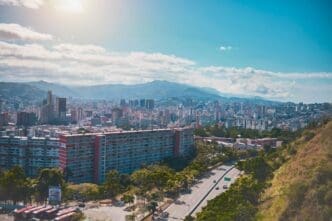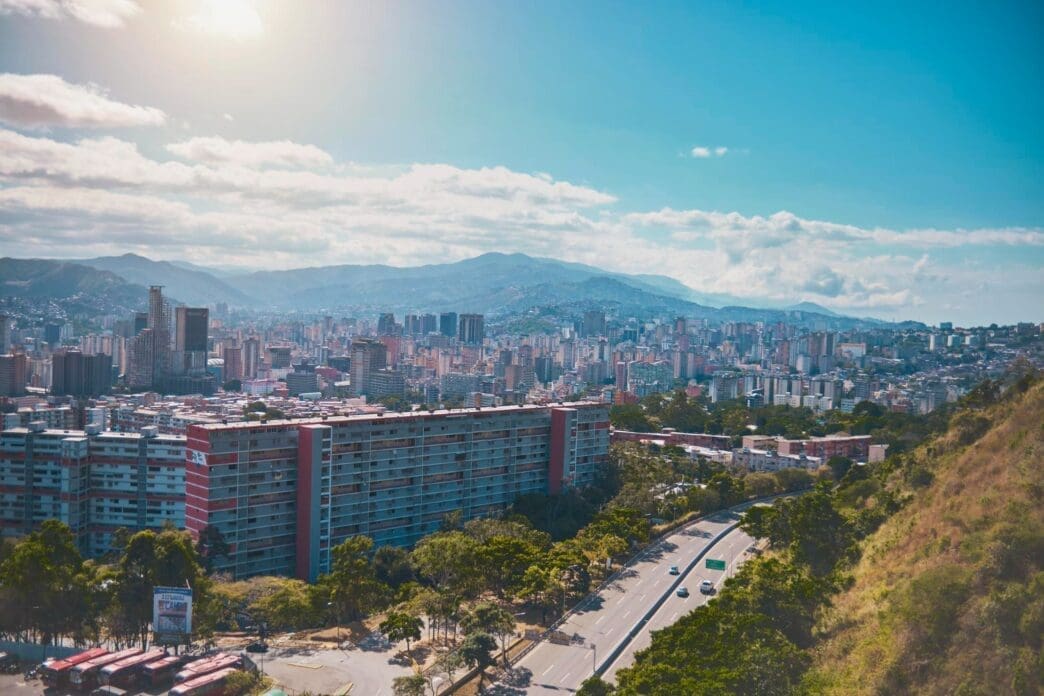Executive Summary
The Story So Far
Why This Matters
Who Thinks What?
President Donald Trump’s administration is actively considering military strikes against drug cartels operating in Venezuela, potentially targeting locations within the country, as part of a broader strategy to weaken leader Nicolas Maduro. This campaign has recently escalated, highlighted by a deadly strike on an alleged drug boat departing Venezuela. Sources indicate this strike is the initial phase of a more extensive effort to combat narcotics trafficking and possibly influence a change in leadership within Venezuela.
Escalation of Pressure
The recent boat strike, described by sources as a direct reflection of options being weighed, marks a significant escalation in the administration’s campaign against drug cartels, many of which have been designated as terrorist groups. Multiple sources have suggested this strike is merely the beginning of a larger initiative aimed at eradicating narcotics trafficking in the region and potentially dislodging Maduro from power.
Military Buildup in the Caribbean
In recent weeks, the United States has deployed substantial military assets to the Caribbean, a move intended partly as a signal to Maduro. This deployment includes ships armed with Tomahawk missiles, an attack submarine, various aircraft, and over 4,000 US sailors and Marines positioned near Venezuela. Additionally, two White House officials noted that 10 advanced F-35 fighter jets are being sent to Puerto Rico, where a Marine unit is conducting amphibious landing training.
Linking Maduro to Drug Trafficking
The administration has explicitly connected Maduro to its anti-drug mission, labeling him a narco-terrorist with alleged ties to recently designated cartels. This effort includes doubling the bounty for his arrest to $50 million. Earlier this year, President Trump authorized the military to conduct lethal operations against cartels designated as terrorist groups, a move that appears to allow the treatment of suspected smugglers as enemy combatants rather than criminals.
Officials’ Statements on Strikes
When questioned about potential strikes on Venezuelan soil against the Maduro regime, Secretary of State Marco Rubio did not rule out the possibility, stating, “This is a counter-drug operation. We are going to take on drug cartels wherever they are, wherever they are operating against the interests of the US.” Rubio later elaborated on the boat strike, confirming, “Instead of interdicting it, on the president’s orders, we blew it up. And it’ll happen again. Maybe it’s happening right now.”
Strategic Objectives
While President Trump stated that the US is “not talking about” regime change when asked by a reporter, multiple sources indicate that some officials believe these strikes could pressure individuals around Maduro who benefit from illicit cartel revenues. The aim is to squeeze them sufficiently to consider ways to remove the Venezuelan leader, with one source suggesting the message to Maduro is, “Do you want it to be easy or do you want it to be hard?”
Uncertainty and Legal Justification
Despite the aggressive posture, the administration remains intentionally vague, and there is currently no indication that President Trump has definitively approved military strikes against targets inside Venezuela. The lack of clarity has fueled significant concern in Washington regarding the legal justification for Tuesday’s strike and any future military actions. A scheduled congressional briefing on the strike was abruptly canceled without explanation, prompting questions from lawmakers and staff.
White House Position
On Thursday, the White House sent a letter to Republican House Speaker Mike Johnson and Republican Senator Chuck Grassley, asserting that the president acted within his constitutional authority as commander in chief. The letter also highlighted the open-ended nature of the mission, stating, “It is not possible at this time to know the full scope and duration of military operations that will be necessary. United States forces remain postured to carry out further military operations.”
Past Engagements and Internal Dynamics
Earlier in President Trump’s term, Richard Grenell, then Trump’s envoy for special missions, visited Caracas to meet with Maduro, leading to speculation about a potential shift away from the “maximum pressure” campaign. This visit, which resulted in the return of six detained Americans, reportedly created a clash between Grenell, who favored making deals, and Secretary Rubio, who has consistently opposed concessions to Maduro. Since then, the White House has maintained its opposition to Maduro, with Rubio becoming a prominent public voice in the administration’s anti-cartel campaign.
Contradictory Actions and Expert Views
Despite the heightened rhetoric and military posturing, the US continues to coordinate with Venezuelan officials on deportation flights and recently re-issued a license for Chevron to resume oil operations in Venezuela. These apparent contradictions have led some experts, including Benjamin Gedan, former Venezuela director at the National Security Council under the Obama administration, to question the administration’s ultimate goals, noting that Venezuela might be open to cooperating on many fronts other than regime change.
Venezuela’s Role in Drug Trade Debate
Experts also point out that Venezuela plays a relatively minimal role in the region’s drug trade, raising questions about whether narcotics are being used as a pretext to target Maduro. The UN indicates Venezuela is not a cocaine-producing country, although transit is not ruled out. Secretary Rubio, however, has sharply rejected any suggestion that Venezuela is not a key piece of the drug flow to the US, dismissing such reporting as “fake” and stating, “I don’t care what the UN says. The UN doesn’t know what they’re talking about.”
Long-standing Policy Objectives
A long-standing objective of US policy has been to encourage the Venezuelan military to turn against Maduro, though this has not been successful, according to experts like Gedan and retired US Ambassador Luis Moreno. Moreno noted that while profits from trafficking “somewhat” support Maduro, the immense money made by Venezuelan military security forces from payoffs from Colombian traffickers is significant, though it may not directly support Venezuelan infrastructure.
The Trump administration is intensifying its pressure campaign against Nicolas Maduro’s government in Venezuela, leveraging counter-narcotics operations as a central component. While military strikes against cartels, potentially inside Venezuela, are under consideration, the administration has not definitively committed to such actions. The strategy has sparked debate over its legal justifications, long-term objectives, and the true extent of Venezuela’s role in the international drug trade, highlighting a complex and evolving US foreign policy approach in the region.














